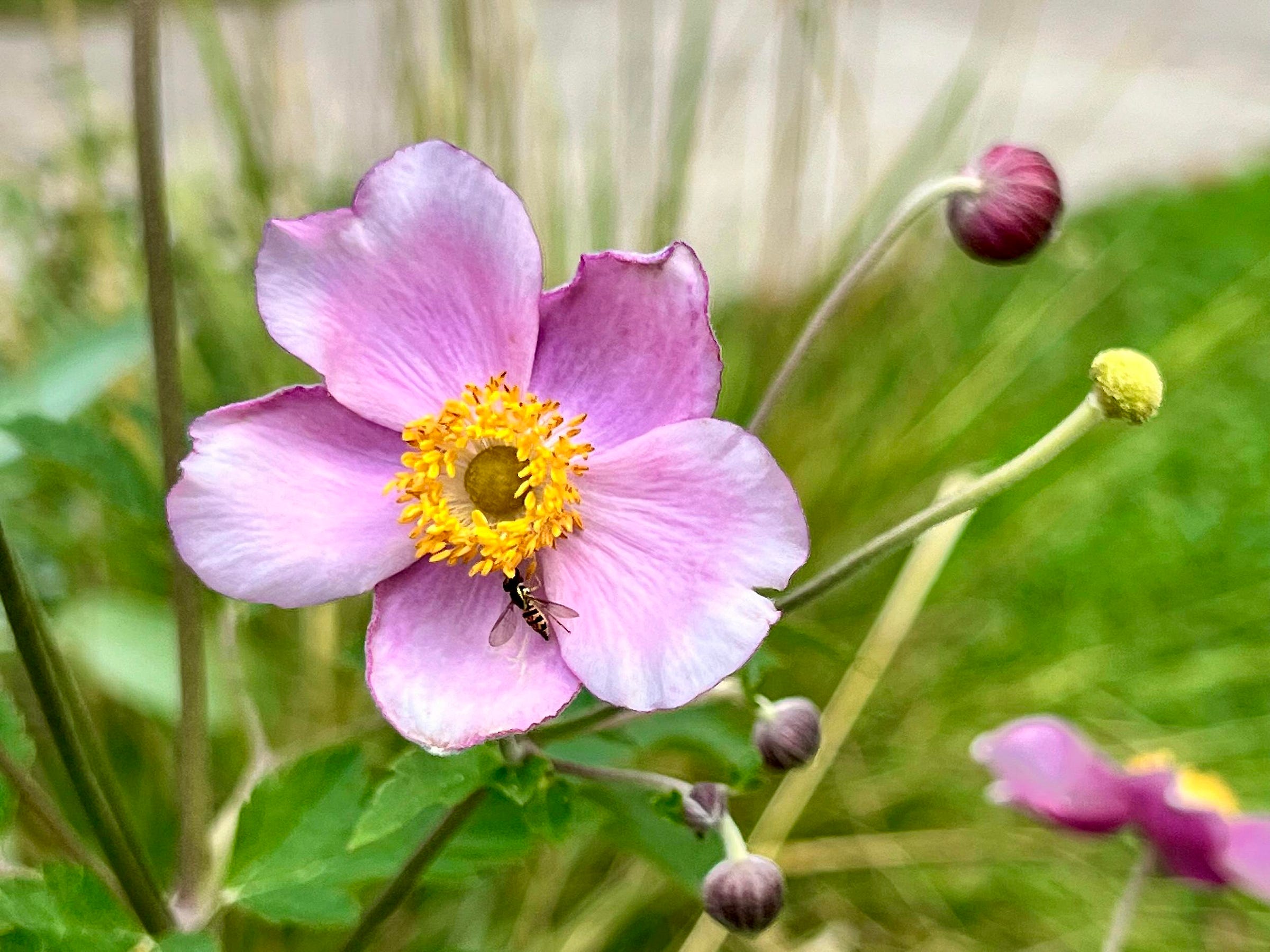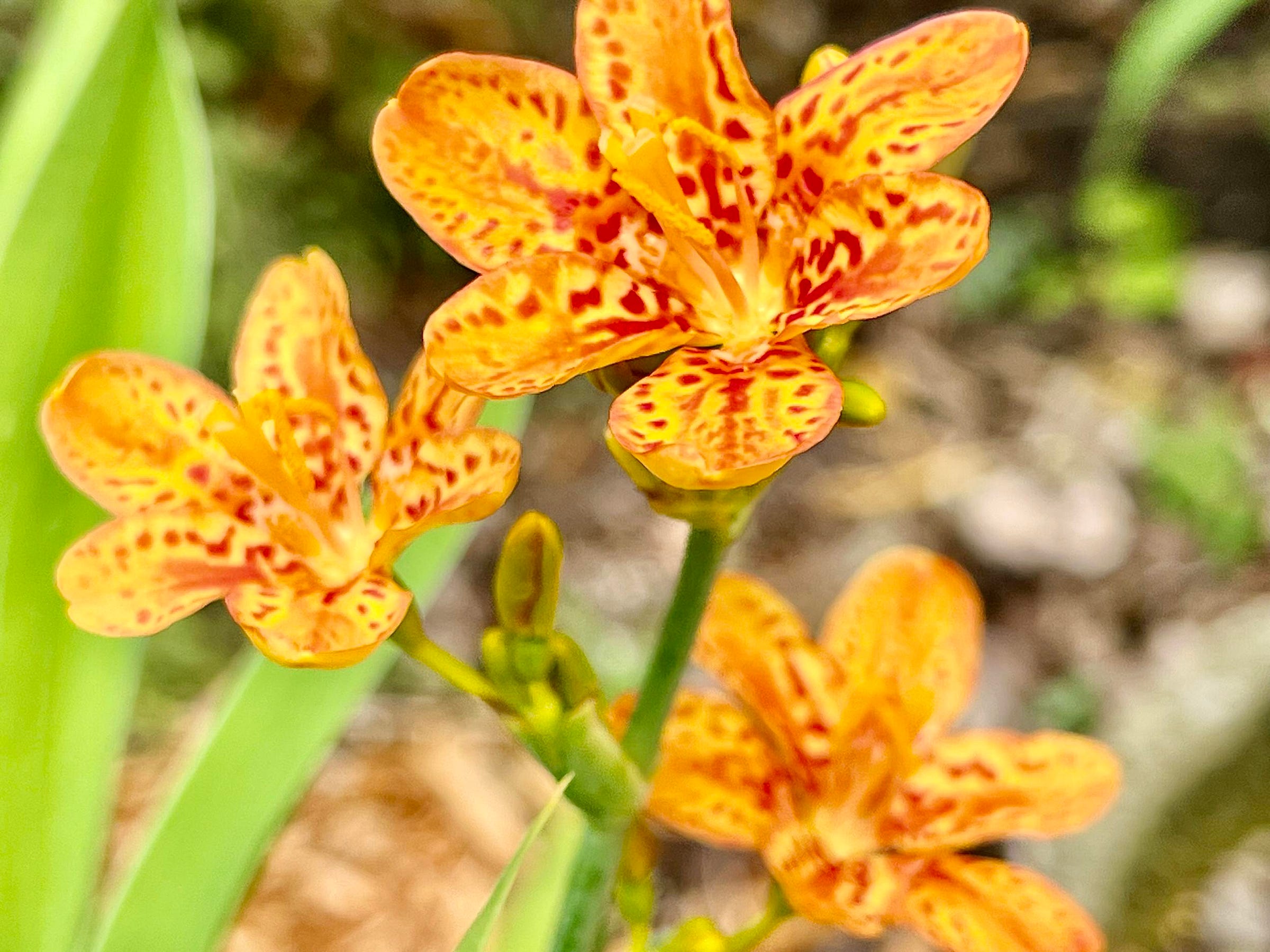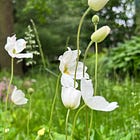"Cosmic Partnership:" Hildegard of Bingen on living in harmony with all creation.
Some musings while walking the gardens.
My dear fellow pilgrim,
Thank you for being here at this cloistered space where dancing monks and weary pilgrims mingle, where we ponder the wisdom of great teachers and look to find the sacred in all things. All done while walking through a fast-paced world which distracts us from looking deeper, and challenges us to draw mind and heart closer. Some of you found our Cloister Notes through my last “Letter to America”, an essay on experiencing toxic religion. Welcome here! I am working on a follow-up letter sharing more from having grown up behind the Iron Curtain; that letter will be coming out later this month.
Today’s (mid)weekly blessing re-introduces our “On Being Human” series, which for the next three months or so will follow in the footsteps of Hildegard of Bingen with long-form essays coming to you on several weekends this Fall.
In this brief reflection today, I invite you to ponder a word of wisdom from the great Hildegard. And if you have not, please join our intimate community of seekers by becoming a free - or even better - a paid subscriber.
Cloister Notes is an independent publication which fully lives from the kind support of our readers. Thank you, thank you.
“In the beginning all created things were green…”
— Hildegard of Bingen1
I spent this morning walking our garden, watching the green fading in the autumn sun. A bunny was hopping away and the small yellow iris flowers just opened their heads hungry for the first sun rays. The autumn air was mild and smelled of wet soil and the morning coffee in my hand: Cinnamon, nutmeg, clove, Hildegard’s trinity of joyful spices, we love to add to our coffee, finishing off with a dash of cardamom.
Hildegard of Bingen, who’s feast day is Sept 172, was not only a medieval Abbess, scholar and writer, but also a spiritual teacher, who understood the art of healing as much as the art of living.
Her cloistered life was structured by the rhythm of the daily prayers, and the work time in-between them.
For her, living a religious life was living a life of greening, one which is fundamentally connected to the care of all living things in God’s creation. Thus Hildegard understood the human task to be living in harmony with all creation, like in a “cosmic partnership.” (Schipperges, 1998, 95)
I have written about this cosmic partnership at length in my recently published paper on her eco spirituality (yeah!) which you can find here. And I will write more on it in a longer essay soon.
Today we will ponder her main theme: an invitation to live in partnership with all creation.
Hildegard draws the world as an orderly weave in which all things must interact with each other properly, which means, the whole world exists in a cosmic partnership.
This gives humanity the responsibility to cultivate the world (opus cum creatura) not by dominion but in mutual care. Hence, according to Hildegard, we are called into cooperation and co-creation in the divine work of creation:
God, for the glory of his name,
gathered together the world out of the elements,
strengthened it with the winds,
stitched it together and gave it light with the stars,
and filled it up with all the other creatures.
With all these things in the world he surrounded and
fortified humankind and everywhere imbued them
with the greatest strength, so that
creation might assist them in all things and partake in all human works,
so that they might do their work
with
creation
— for humankind can neither live nor even exist
without creation… .
Hildegard of Bingen (BDW 1.2.2)
Though Hildegard centers the human being in the cosmos, she does not see our relationship with creation as one of dominion. Instead, brought to life by the divine breath and strengthened with the greening power of the earth and the elements, we are called to work with creation, not against it.
This means the responsibility for the created world is given to us because of our creatural condition, “as it would be inscribed into our DNA.” (Zátonyi, 2022, p. 233)
A life which goes against creation, which does not care about the sacred rhythm of the created order, dries out and wilts.
Thus, in order to be fully alive we are called to live in active harmony with all creation (Furchert, 2021).
Inspired by Hildegard, here is my blessing for you today:
When did you last catch a rain drop with your tongue,
dear one?
When did you last run laughing through blooming meadows
like a child before the dinner bell rings?
When has your soul last tasted
the freshness
of the living water
like rain on your lips?
May each breath
remind you of the Divine in us
each water drop
of the water which flows through us
each leaf tumbling to the ground
of the sacred rhythm of all being.
May you find peace in awareness that you are part
of this wondrous creation
and that each morning
is a dawn towards the living light.
AF
Peace and love to you, Almut
PS: Please leave a heart or a note in the comments section so we know you have been here. I answer every comment :-)
In case you missed it:
Thank you for reading, sharing and supporting Cloister Notes, a letter for dancing monks, weary pilgrims and wounded healers in the intersection of psychology, philosophy and spirituality. Your support makes this labor of love possible.
If you have been moved by what you are reading do consider becoming a sustaining subscriber, joining our intimate communion of fellow pilgrims on the deeper way.
You can share this letter by simply forwarding this email or by sharing it online.
Thank you, thank you.
LDO III.5.8











I love the picture of the bee on the flower. It is a fine metaphor for partnership.
This was exactly what I needed to hear, thank you for bringing my attention to your work. Your blessing is the most beautiful and touching words I've read in a long time. These words will reside within, reminding me of the sacredness of all beings.